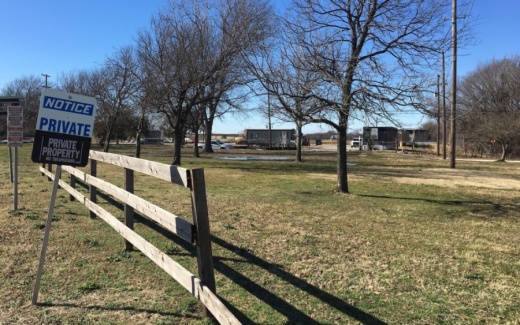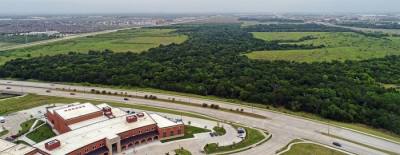Frisco originally reached an agreement with Exide Technologies in 2012 to close the plant, which had too-high lead emissions. In exchange, the city agreed to purchase nearly 170 acres that Exide used as a buffer from surrounding development. Exide also had to clean up the land and Stewart Creek, which had been contaminated after decades of operations.
Frisco City Attorney Richard Abernathy told council all elements of the 2012 agreement were completed except for the plant site's remediation, which would remove contaminants and purify about 100 acres of soil. Abernathy said “great progress” has been made over the last eight years despite two bankruptcies for Exide and a pair of lawsuits between the city and the company. Exide filed for bankruptcy in May of this year and received approval in August to sell its battery business in the United States to an affiliate of Atlas Holdings, which is headquartered in Greenwich, Connecticut.
“Exide’s goal was to abandon the [Frisco] property,” Abernathy said. “So the city of Frisco has entered into an agreement to have it conveyed to Frisco. And based on that conveyance, Frisco will complete the remediation.”
Plans for Grand Park
Frisco Mayor Jeff Cheney said it has been a years-long struggle to get to this point.
“Grand Park could not start until this was resolved so [that] we could clean up the site and begin moving forward," Cheney said. “This is a major milestone for the city of Frisco to finally not only gain control of the property but gain control of the cleanup process.”
During the city’s Oct. 5 Town Hall, Cheney said plans for Grand Park have grown to 600 acres that extend throughout the central core of the entire city.
“It's now anchored with the Frisco [Public] Library, our museum district and our Railroad Museum,” Cheney said Oct. 5. “We now have trails that can take you all the way to Lake Lewisville, all the way to The Rail District and actually have veins that go to every part of this community, including The Star [in Frisco]. It's really going to be the heart of this city.”
He said residents can expect to begin hearing more about Frisco’s plans for Grand Park next year.
“I am really hopeful that we can start moving forward with a shovel in the ground on some part of this project by the end of 2021,” Cheney said during the town hall.
Remediation process
When the Exide plant ceased operations on Nov. 30, 2012, it had 134 employees and was recycling around 6 million used automotive and industrial batteries each year. It also generated some of the highest lead emissions in the country. Lead is a heavy metal linked to a host of health problems, according to numerous studies.
Exide’s closure put a stop to the pollutants emitted in the air. But the surrounding land had been exposed to decades of contamination from lead, cadmium and arsenic.
The cleanup process involves removing contaminated soil as well as pieces of broken battery casings and a waste material called slag. Abernathy said the cost of the remaining remediation of the property is estimated to be $30 million.
“Exide agreed in one of our settlements to put up, with the Texas Commission on Environmental Quality, a $25 million [surety] bond,” Abernathy said. “The TCEQ has now agreed that it will put the $25 million in a trust. The [Frisco Community Development Corporation], which will own this property, will be able to use that money to pay for the remediation, but it will have to be through the approval of the TCEQ and working with them.”
He said Frisco will contribute the remaining funds for cleanup. Frisco also agreed to pay $3.5 million to resolve a dispute over rights claimed by the bonding company Exide used in 2019 to set aside money for cleanup.
“At the end of the day, the city is going to have control of the property, subject to TCEQ approval,” Abernathy said.
He said the remediation process will take several years, but once it is completed, the property will be safe and clean to the standards required by the TCEQ.
“I'm really excited by the work that's been done,” Cheney said during the council meeting. “We’re not quite there to spike the ball in the end zone just yet, but we're on the 1-yard line.”






